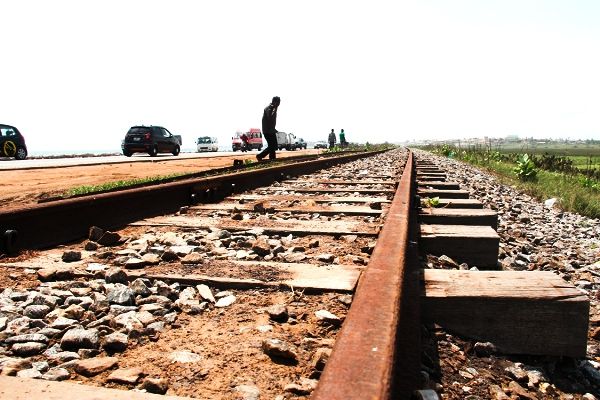
Tema-Akosombo railway project, land administration, management matters arising
Lord Lugard once said that the development of Africa can be summed up in one word – transportation.
One area of transportation that the government is bent on revamping is the railway sector.
Advertisement
This will go a long way to ensure accelerated socio-economic growth and development. Currently, the implementation of the Tema to Akosombo Railway Project is in progress.
It is to facilitate the transportation of goods from the Tema Port to the northern parts of the country.
Plans are also afoot to connect the country with neighbouring Burkina Faso with rail.
The publication of the Executive Instrument 10 of January 5, 2018 to enable the government to acquire land for the execution of the railway project has brought into sharp focus, once again, the subject matter of compulsory acquisition and compensation within the context of land administration and management in the country.
The publication has affected a great deal of landed property including buildings, vacant lands, and economic trees, giving rise to legitimate claims for compensation.
Areas affected include the Shai-Osudoku District in the Greater-Accra Region and the Lower Manya Krobo Municipality in the Eastern Region.
Land has been the subject matter of transaction since the dawn of history.
To access land to execute any public development project, government has two options.
The first option is to purchase the land from the land market under conditions akin to a fair market sale.
The second option is to use the powers of compulsory acquisition which governments since the colonial days have resorted to.
Compulsory acquisition
Compulsory acquisition is the power of government to expropriate private proprietary interest in land for public purpose.
It is exercised without the consent of the owner. Such a power is exercised within the context of good governance and strict adherence to the rule of law.
Article 20 of the 1992 Constitution details out the kind of projects eligible for which the powers of compulsory acquisition can be exercised.
The Article is supplemented with the State Lands Act, 1962 (Act 125) and the Statutory (Wayleaves) Act 1963 (Act186).
Article 20 of the Constitution and supplementary laws bring out clearly the fact that the issues concern land law and administrative law in which necessary governance procedures are set out and must be adhered to.
Process
In the process of acquisition and the payment of compensation, having adequate information on the land tenure system prevailing in the area affected by a project is very important.
Equally important is judicial precedents and decided cases in the matter of land ownership.
It empowers the acquiring authority to make informed decisions as to who owns what and who is compensated. In Ghana, there is no land without an owner.
In the Manya Krobo Traditional area lands are ancestral family lands, unlike stool lands in the Akan areas.
The proprietary rights are vested in individual families.
The accredited heads of the various families hold these lands on behalf of and in trust for members of the families.
The proprietary rights constitute the basis of their economic, social and cultural identity.
In Ghana, administration and management of traditional lands is governed by enacted legislation in conjunction with customary law and regulations, and in this instance as known to the Krobos.
The ManyaKrobo Stool, and, for that matter, anyone who occupies it has only jurisdictional rights and not proprietary interest in land.
This position of the law is well settled in the judgment dated December 12, 2001 and delivered by Mr G.H.A Debra, Circuit Court Judge, Akropong Akwapim in the case between Charles Teye Wayo Tawiah, head and lawful representative of C.T. Tawiah family as plaintiff and ImpregilloRecchi, G.L.A Djabanor and the acting President Manya Krobo Traditional Council as defendants.
The judgment is quite revealing in terms of land ownership in the area. In the case of the Republic vs. the Regional Lands Officer Ex parte Professor Kludze 1994, it was held that family lands are not part of Stool Lands.
The Manya Krobo Stool’s position in any compulsory acquisition of land by government can aptly be summed up in the dictum, ‘’nemo dat quod non habet’’ to wit: ‘you cannot give that which you do not have’.
Compensation
Central to compulsory acquisition is the payment of prompt, fair and adequate compensation to affected land owners which is a constitutional provision.
The compensation paid must be based on the principle of equivalence, i.e. the amount received must be no more or less than the loss resulting from the compulsory acquisition.
The railway acquisition presents matters of importance which cannot be ignored in the valuation assessment and for that matter the amount to be paid as compensation.
These include matters of injurious affection, severance, the reduction in value of unaffected landed property, the occupation and use of land which falls outside the area specified in the acquisition schedule by project implementers.
The compulsory acquisition of customary lands for development projects is a sensitive issue.
It must be appreciated that land, to those whose proprietary interest gets extinguished, is a valuable economic asset and a source of livelihood, safety net and socio-cultural identity.
In any acquisition, therefore, there will be the need to strike a balance between the public need to compulsorily acquired land for public use for the benefit of society as a whole and the need to protect private rights to land and livelihood.
The writer is a Land Economist,
Otumfuo Centre for Traditional Leadership,
University of Professional Studies.




